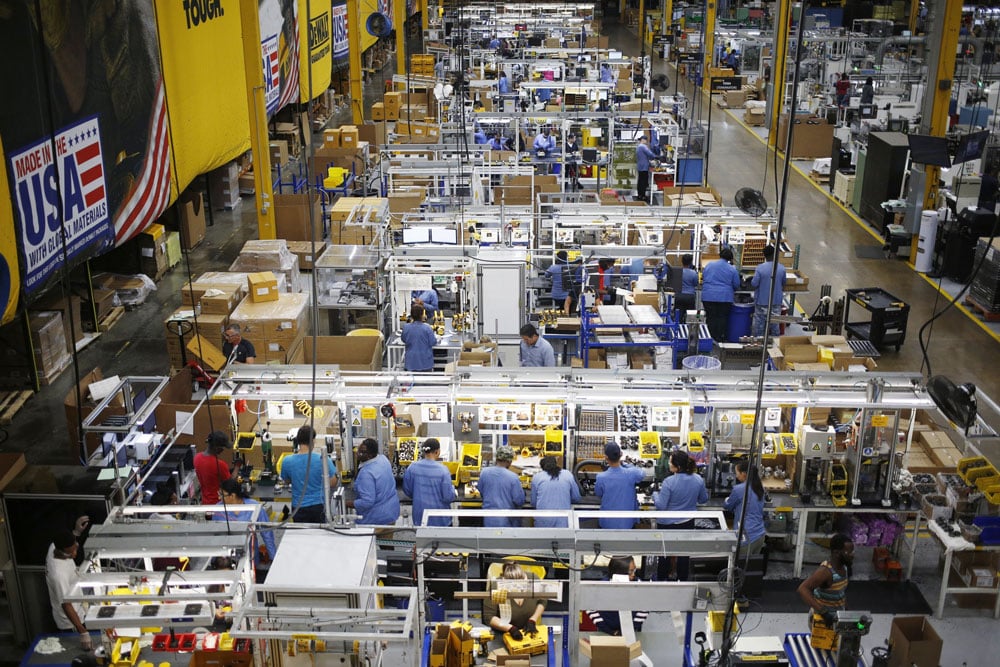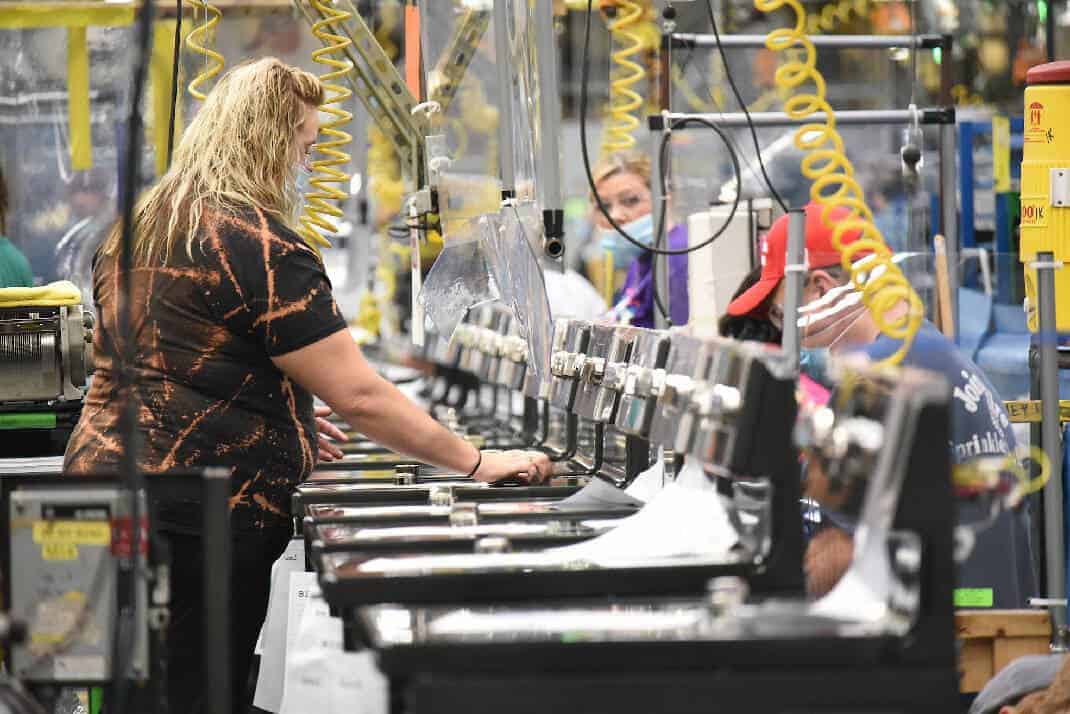Warehouse associates are some of the most adaptable workers in the world, and they’re continually leveraging different skills to perform a variety of tasks within the shop. While all the work they do happens behind the scenes, the warehouse staff is often the backbone of a thriving business, and the work they do allows other departments to function efficiently.
Whether you’re an aspiring warehouse associate, or a business looking to staff a warehouse with qualified help, there are some things you’ll need to know. Today, we’re going to take a closer work at the job description and responsibilities of warehouse employees.
What Do Warehouse Associates Do?
The warehouse staff is responsible for virtually all of the day to day tasks that keep the warehouse running efficiently. Since every business is different, what the company asks of its warehouse associates will vary. So, depending on the individual needs of the employer, the responsibilities of the warehouse workers will vary.
However, there are some general guidelines as far as the responsibilities and job description of warehouse employees are concerned. Here are some of the daily duties of the typical warehouse associate.
- Inventory organization and maintenance
- Unassisted heavy lifting up to 75 pounds
- Inventory tracking as products moves through the warehouse
- Label inventory for sale or use
- Inspect inventory for defects or damages and document any instances
- Fill and check customer orders
- Maintain daily inventory logs
- Operate forklifts and other heavy machinery
- Equipment maintenance and upkeep
- Scan items into the inventory management system
- Routine cleaning duties
- Interface with management to ensure key objectives are realized
- Maintain safety regulations and compliance with all applicable regulations
For most warehouse employees, this list represents the tip of the iceberg; there are tons more general and specialized tasks that make up the workday for the average warehouse associate. This position requires flexibility and ongoing training to ensure that the job is performed safely and at a high level.
Most warehouses are exceptionally fast-paced and demanding, and a good warehouse manager will ensure that the tasks they delegate are in line with each employee’s skill set. For the employer, hiring is especially important to ensure that work is completed accurately and efficiently. Effective hiring practices also lead to higher employee retention, as well.
Within the warehouse, some departments will undoubtedly handle more demanding and sensitive tasks, and these roles are usually filled by workers with skill and experience, or seasoned employees who have had appropriate in-house training.
Warehouse Associate Skills
The skills necessary to excel in the role of warehouse employee vary greatly depending on the type of business and the work they require of their warehouse staff. For most warehouse positions, in-house training is provided, and potential applicants may be hired without any prior experience or knowledge of warehouse operations.
Whether you’re seeking an entry-level position, or you’re an experienced warehouse laborer looking for work within a new company, there are a few necessary skills you’ll need to have.
Capable workers should possess excellent interpersonal and communication skills. Attention to detail is also of paramount importance in the warehouse. Warehouse employees will also need to possess basic to intermediate level computer skills. As technology continues to change the warehouse industry, computer and technology skills will become increasingly important.
Highly organized individuals that are attentive to detail and take the time necessary to understand the various processes of the job usually thrive in warehouse positions.
While it goes without saying, employees will also need to be physically fit enough to handle the rigors of work in a warehouse.
As a warehouse employee, you’ll spend most of your shift on your feet and will typically need to wear steel toe shoes. Employees in large warehouses often walk a mile or more throughout their workday. Besides being on your feet all day, you’ll need to be able to lift heavy loads of up to 75 pounds, often multiple times each day.
Warehouse Associate Salary
For warehouse workers, the salary you can expect to make will vary greatly depending on the company you’re working for, the nature of the work you’ll be doing, and where you’re located.
More advanced warehouse positions which require specialized skills or training command higher salaries, while basic jobs which require less experience pay on the lower side of the spectrum.
Most companies pay their warehouse staff on an hourly basis. Depending on the company and your level of experience, you can expect to make somewhere in the realm of $13-20 per hour. For salaried employees, the average salary can range from $30,000-50,000. These numbers can change significantly if the employee receives overtime or bonuses.
As employees gain more experience, new roles may become available, which pay a higher salary. Warehouse associates are often groomed for management positions within the warehouse or the company’s logistics department. Former entry-level employees achieve high-level positions at successful companies across every industry.
Since the average compensation for warehouse work can vary so much, it’s a good idea to search job postings in your local area to get a better idea of what warehouse workers near you are making.
Prerequisites for the Job
The good news for aspiring warehouse associates is that the industry is easy to break into, and there are probably opportunities in your area right now. In most cases, there are very few prerequisites for entry-level employees. For most entry-level positions, all that’s required is a high school diploma or GED.
Most companies provide extensive on the job training for their new hires. By providing training, companies can ensure that their employees learn each aspect of the job to the exact specifications of the employer.
Of course, if you’re hoping to engage in more specialized warehouse work, there may be some training or skills required that the employer doesn’t offer. For example, a warehouse worker who aspires to operate forklifts or heavy machinery will often need certification before they’re able to operate the machinery legally.
Taking training courses and receiving certifications is a great way to gain the qualifications necessary for higher-level positions while also letting employers know that you’re serious about performance and safety.
Helpful Skills and Certifications
While most employees get their start in the warehouse without any prior experience, it can be quite useful to bring relevant skills or certifications to the table, even if they aren’t a requirement for the position.
In a warehouse position, some basic mechanical skills and experience can be quite helpful. People who are generally handy can thrive in warehouse positions, as there are often opportunities to perform maintenance or repairs on the equipment the company uses.
While most entry-level positions don’t require any certifications, there are several which you may want to consider, as they can be especially helpful to have within the industry. For higher-level warehouse positions, these certifications and others like them may be a prerequisite.
Forklift certification or a commercial driver’s license are both popular certifications that can help make a potential employee more attractive to companies across a broad range of industries.
The OSHA Ten Hour Certification for General Industry and Health is also an attractive certification to have, as it assures potential employers that you possess the essential knowledge and skills necessary to thrive in a warehouse position.
Certified OSHA outreach trainers also offer additional training on a variety of general industry and safety topics. As you progress in the industry, it may be wise to look into these certifications.
Beyond these useful certifications, there are also many more specialized certifications that may be good to have depending on the industry. Trade organizations like the American Purchasing Society and International Warehouse Logistics Association also offer specialized certifications, as do companies like SAP and Microsoft.
While these training courses may be a good idea, it’s best first to land a job before you consider any specialized certifications that may not apply to the position you’re applying for.
What Kind of People Make Good Warehouse Employees?
As anyone who has ever worked in the business can tell you, warehouse workers are a vibrant and talented group of people who come from a myriad of different places and cultures. Virtually anyone can learn how to work in a warehouse. Those who are prepared to work hard and learn the processes of the job will find warehouse work to be quite rewarding.
The environment is fast-paced, and employees will need to be on their feet for the majority of their shifts each day, so energetic people who don’t like to be in one spot for too long tend to thrive in warehouse positions.
For a warehouse to function efficiently, the staff needs to work as a cohesive team. The best warehouse workers are effective communicators who the other members of the group can count on. For individuals looking to make a career in the industry, they must continue to learn and grow their skills throughout employment. As technology continues to revolutionize every industry under the sun, those who stay on the cutting edge of the latest advancements will find themselves in high demand.





